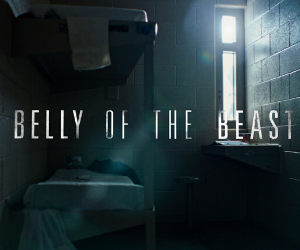For the better part of the last decade, FIJ grantee Erika Cohn, a Peabody and Emmy Award-winning director/producer, has worked to shine a light on reproductive and human rights violations inside the walls of California’s women’s prisons. In 2010, Cohn began following the work of Cynthia Chandler, an activist lawyer, and Kelli Dillon, a woman who was involuntarily sterilized at the Central California Women’s Facility, as they fought to expose those abuses. The result is Cohn’s film, “Belly of the Beast.”
Set to debut on opening night of the Human Rights Watch Film Festival on June 11, the documentary follows Chandler and Dillon as they wage a near impossible battle against the Department of Corrections, and spearhead investigations that uncover a series of statewide crimes, primarily targeting women of color, from inadequate access to health care to sexual assault to illegal sterilization.
“It was modern day eugenics,” said Cohn. “Even though I had hundreds of testimonials from people directly impacted, a lot of people couldn’t wrap their head around the fact this was actually happening.”
As a result of this skepticism, Cohn’s film went mostly unfunded in its early stages.
But in 2013, Cohn said, Chandler’s advocacy work along with increasing media coverage thrust the sterilization issue into a national conversation and helped validate the experiences of her sources. The mounting evidence also led to hearings in the state Legislature and eventually to the passage of a bill in 2014 banning sterilization as a form of birth control for the state’s female prisoners.
Cohn received a grant from FIJ soon after to further investigate the extent to which these violations had occurred in prisons throughout the state.
FIJ’s funding, Cohn said, came at a crucial time, and led to a wealth of new reporting that helped validate the experiences of hundreds of women interviewed throughout the film’s production.
“This film required a different investigative reporting process that a lot of traditional film funders weren’t supporting,” said Cohn. “FIJ’s support allowed us to take a deeper dive into the journalistic component.”




